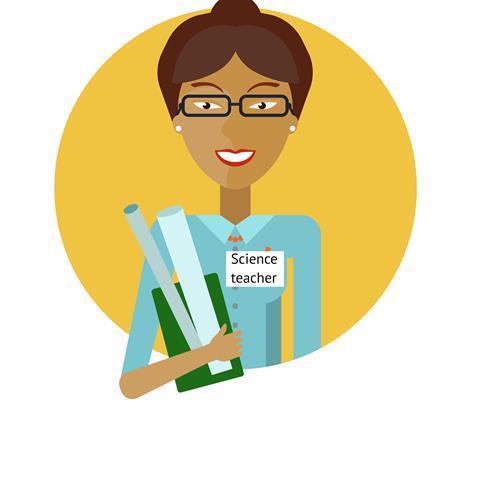What role does subject knowledge play in how 'good' a teacher is? Does it matter whether a chemistry teacher has a chemistry degree?

How do you describe yourself as a Chemist and what defines this? For many people this is relatively simple, academic credentials and research interests provide the definition; degree subjects, final year project dissertations, higher degree and PhD topics all narrow the description from scientist, to chemist, to synthetic organic chemist in my case. How about as an educator? Does your academic ‘label’ matter when you spend a proportion, or indeed all of your time, nurturing the next generation of scientists?
I started my teaching career in what Alistair Campbell would describe as a ‘bog standard comprehensive school’. My contract said ‘Teacher of Science – Chemistry’ and to me that final tag was important. I taught all sciences to GCSE including vocational courses and chemistry to A-level. I even occasionally taught maths and a bit of geography. I count myself as a good teacher but did I really do as good a job teaching outside my specialism as I did teaching what I really enjoyed? If I completely honest with myself I would say no. Students learned, they passed exams, they achieved good grades. In that respect I ticked all the boxes as far as the school’s management were concerned. Whether that is enough depends on your perspective on the role of the educator. I like to think that a big part of my job is to inspire young people to take the subject further, to seek answers to those questions tantalisingly beyond the reach of the specification. I make no apologies for the fact that this sounds really corny! How can I inspire a student to take physics to the next level when I didn’t myself? Also significantly those extra nuggets of information, the interesting asides, the personal experiences, those things that can really make a subject sparkle were absent from my non specialist teaching.
In informal discussions I have found this to be a topic which opens up an incredibly wide debate, it can also be quite emotive. If you’re one of the approximately 5% of secondary science teachers who are teaching without a degree that would be judged as falling inside the definition of a biology, chemistry or physics specialism then to find people suggesting that specialist teachers are always better could leave you feeling criticised. In 2006 the RSC published a bulletin on ‘Who teaches our children chemistry?’ DFES data quoted therein showed an inbalance of specialisms within secondary science departments (44% of staff with a biology background, 25% chemistry and 19% physics). Moreover, chemists and physicists were concentrated in 11-18 schools, independent schools and schools in higher league table positions. All this suggests that not every school student has a specialist chemistry teacher teaching them chemistry. The definition of a subject specialist teacher is also debated (most recently by SCORE).
This is by no means only an issue relevant to school teachers. In their efforts to ease the transition from school or college to undergraduate study, a number of universities have experimented with aspects of their first year courses, most often the delivery of tutorials in semester one. Instead of individual specialists giving tutorials in say organic, inorganic and physical chemistry, the personal tutors may deliver all tutorials in the first semester.
It is difficult to come to a conclusion here that is fair to all sides of the debate. My gut instinct is it is the person who matters the most, a teacher who has the personal attributes to shine in the classroom, that additional ‘oomph’ for want of a better phrase. A subject specialist would be an added bonus. However it does depend greatly on the requirements of the school, could an 11-18 school offering chemistry A-level legitimately recruit the best teachers and end up with a science department with no specialist chemists? It is always possible for someone to improve their subject knowledge in any discipline given support and probably most importantly, time. Whether this is possible with the pressures teachers at all levels face in the current educational climate is probably a debate for another time.









No comments yet